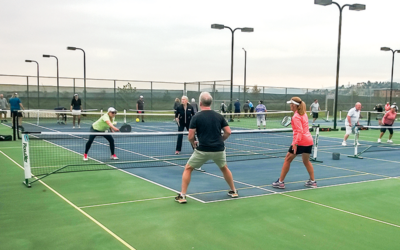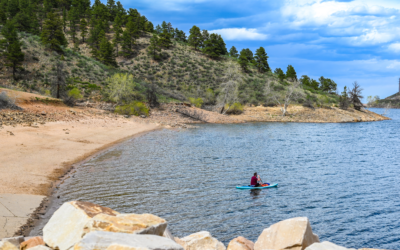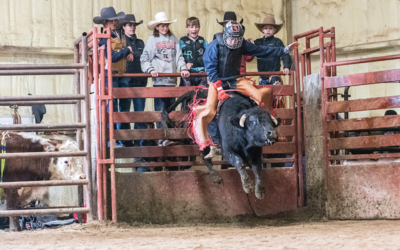How three Northern Colorado businesses pivoted to survive the COVID-19 pandemic.
If there’s anything this last year has taught us, it’s that we can never be too sure what the future holds. Things were going great for many Northern Colorado business owners until COVID-19 brought life to a screeching halt, leaving them at a loss of what to do as fear of the unknown crept in. For several months, things were at a standstill. At least it appeared that way from the outside.
While we were sheltering in place, some remarkable things were happening: seamstresses transformed unused rolls of fabric into face masks; restaurants moved their tables outside to nearby parking lots; fitness instructors became virtual coaches overnight. Business was a game of survival, and only the fittest would make it out on the other side.
Now, exactly a year later, we’re seeing even more creative workarounds come to fruition. Some businesses have shut their doors and created a new presence for themselves online, while others have flipped their entire business model on its head in a 180-degree turn. Here are the stories of three Northern Colorado entrepreneurs who pivoted to beat the odds in 2020.
Alpaca Threadz
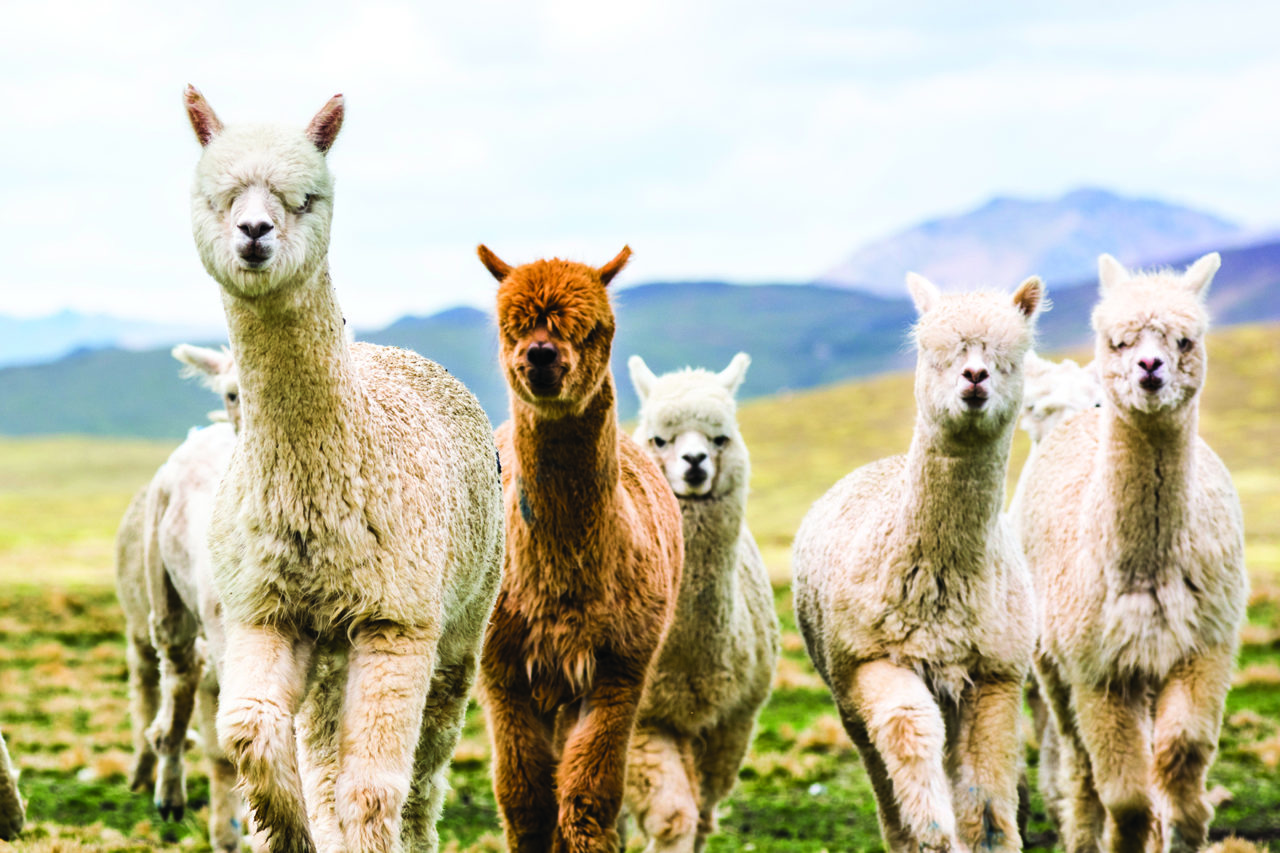
Six years ago, Brandon and LeAnn Morris saved up enough money to quit their desk jobs and travel the world. Both had a background in outdoor recreation and tourism prior to the office life—Brandon was a flyfishing guide and LeAnn was a camp counselor, and they had spent a few seasons working as outdoor education teachers in Estes Park—so when the opportunity came for them to spend the next year exploring places like Ecuador and Peru, they jumped on a plane and took off.
The Morrises formed close relationships with the locals in each community they traveled to, which opened the doors for a new business idea to emerge. They wanted others to be able to share in their experiences while supporting these communities, so they started a travel company with customized, off-the-beaten-track adventures around the world: FlashpackerConnect.
At the turn of the decade, the Morrises haddouble the trips booked than they had for those same months the year prior. They were expecting 2020 to be an exceptional year, not only for Flashpacker, but for the travel industry as a whole. As we now know, the numbers were deceiving.
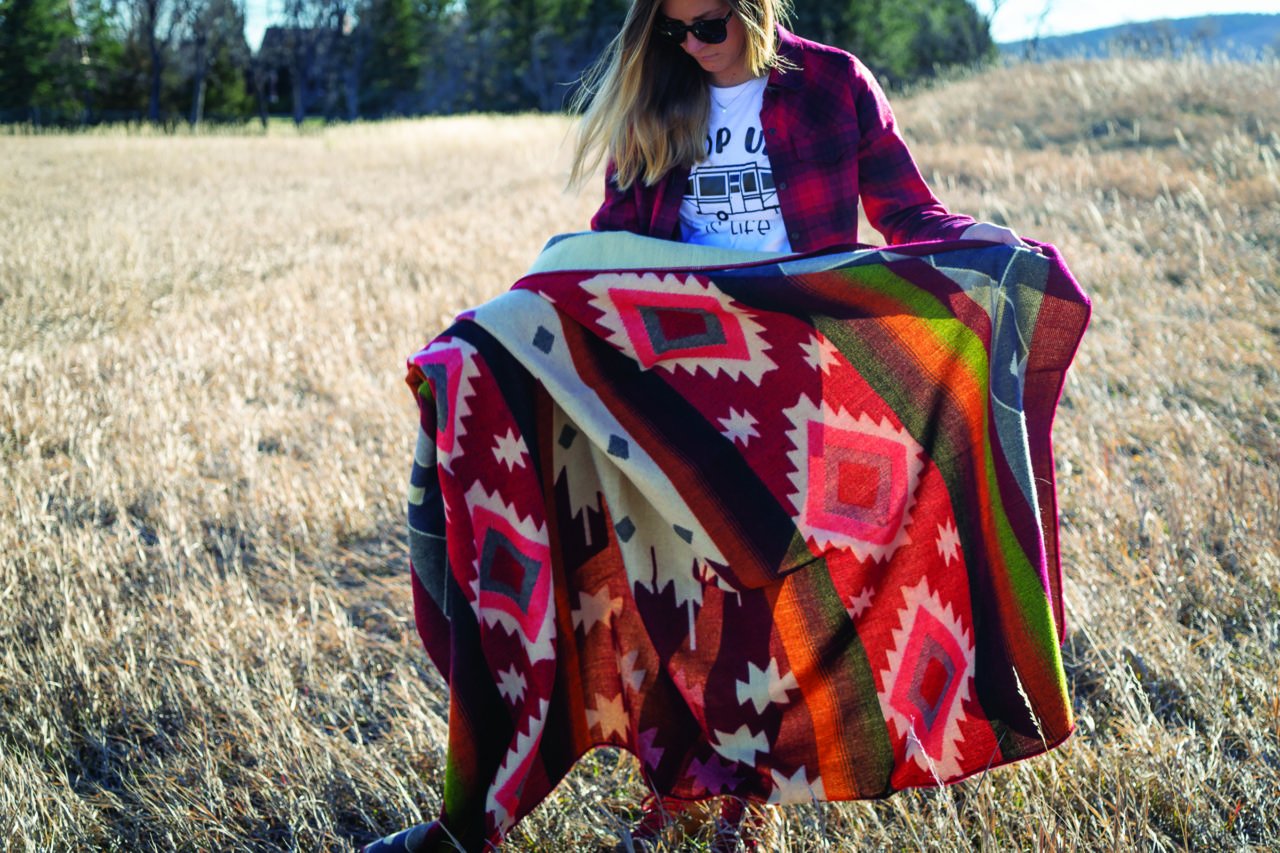 “We had lots of business trips planned to grow the company, and we were even bringing new team members onboard,” LeAnn says. “Then on March 15, things started shutting down. We had guests all over the world on our tours, so our focus immediately shifted from business development to getting our current guests home before the world went into complete lockdown.”
“We had lots of business trips planned to grow the company, and we were even bringing new team members onboard,” LeAnn says. “Then on March 15, things started shutting down. We had guests all over the world on our tours, so our focus immediately shifted from business development to getting our current guests home before the world went into complete lockdown.”
They then turned to the people who had already booked future trips and offered ways to adjust their plans, but ultimately the rest of the year would be a standstill for Flashpacker—until, a couple months into the shutdown, the Morrises had an idea. They reached out to the first family they partnered with in Peru and came up with ideas for how to continue working together in a way that would help the communities they had been supporting through tourism.
The Andean culture is known for its one-of-a-kind handicrafts, such as alpaca wool blankets, sweaters and hats, so the Morrises decided to purchase a handful of items and see if they would sell in the States. They built a website, opened up an Etsy shop and created social media accounts for the new business, which they decided to call Alpaca Threadz. Within a week, all of the items had sold.
“These local weavers and makers rely heavily on tourists to come through their markets, so when we could no longer send people on trips, we had to get creative to make sure our international friends still had their livelihood,” Brandon explains. “It’s been really cool to see how keeping things going during tough times can pay off for everyone involved.”
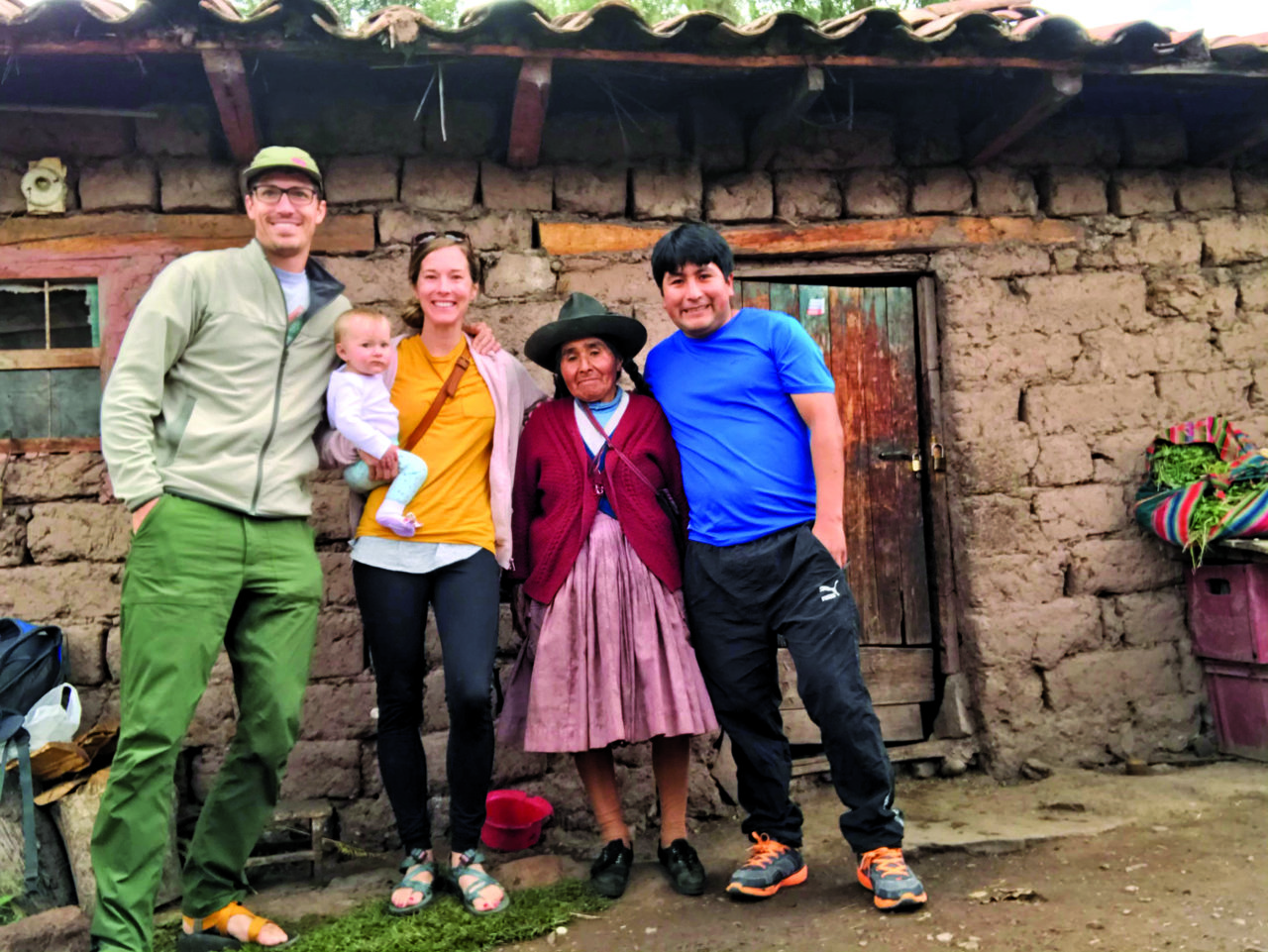 Alpaca Threadz has more than paid off—Brandon and LeAnn are running through their inventory quickly and have ramped up their operation by sourcing even more alpaca blankets from a community in Ecuador. As of now, they’ve sold over 500 blankets with hundreds more on their way.
Alpaca Threadz has more than paid off—Brandon and LeAnn are running through their inventory quickly and have ramped up their operation by sourcing even more alpaca blankets from a community in Ecuador. As of now, they’ve sold over 500 blankets with hundreds more on their way.
The blankets have also made their way into several shops in the Denver area, including Modern Nomad and Acme Fine Goods, as well as Starr Mountain Outfitters in Tennessee. With success growing at such an incredible rate, the Morrises are setting aside 10 percent of each purchase to give back to their international business partners.
“Being able to give back was part of the reason we started our travel company in the first place, so we really wanted to find a way to do that with Alpaca Threadz, too,” Brandon says. “It’s not completely defined yet, because the business grew so much quicker than we were expecting. Whether we decide to make an educational contribution or to simply provide for the communities that have been in a bit of a stalemate so they can focus on their entrepreneurial efforts, I know something really amazing will come of this.”
In many ways, it already has. Alpaca Threadz has provided for the Morris family during Flashpacker’s hiatus, and now that things are starting to look up for the travel industry, the couple plans to continue growing the two businesses in tandem. The result, they hope, will be an even more fruitful relationship with the communities they’ll continue to support for years to come.
Forge & Trek
Of all the businesses affected by COVID-19, the ones that put on large events were among the first to feel the pain. Choirs of America (COA) was one of those organizations that happened to be preparing for their 2020 high school workshops and performances when concert halls all over the country shut down.
Though their events take place on someof the world’s biggest stages (like Carnegie Hall and the Lincoln Center in New York City), the team lives right here in Northern Colorado and operates out of an office on Harmony Road in Fort Collins. Co-founder and executive director, Geoff McQueen, says the first event of the year was scheduled for mid-March, about a week after bars, restaurants, gyms and theaters were ordered to close.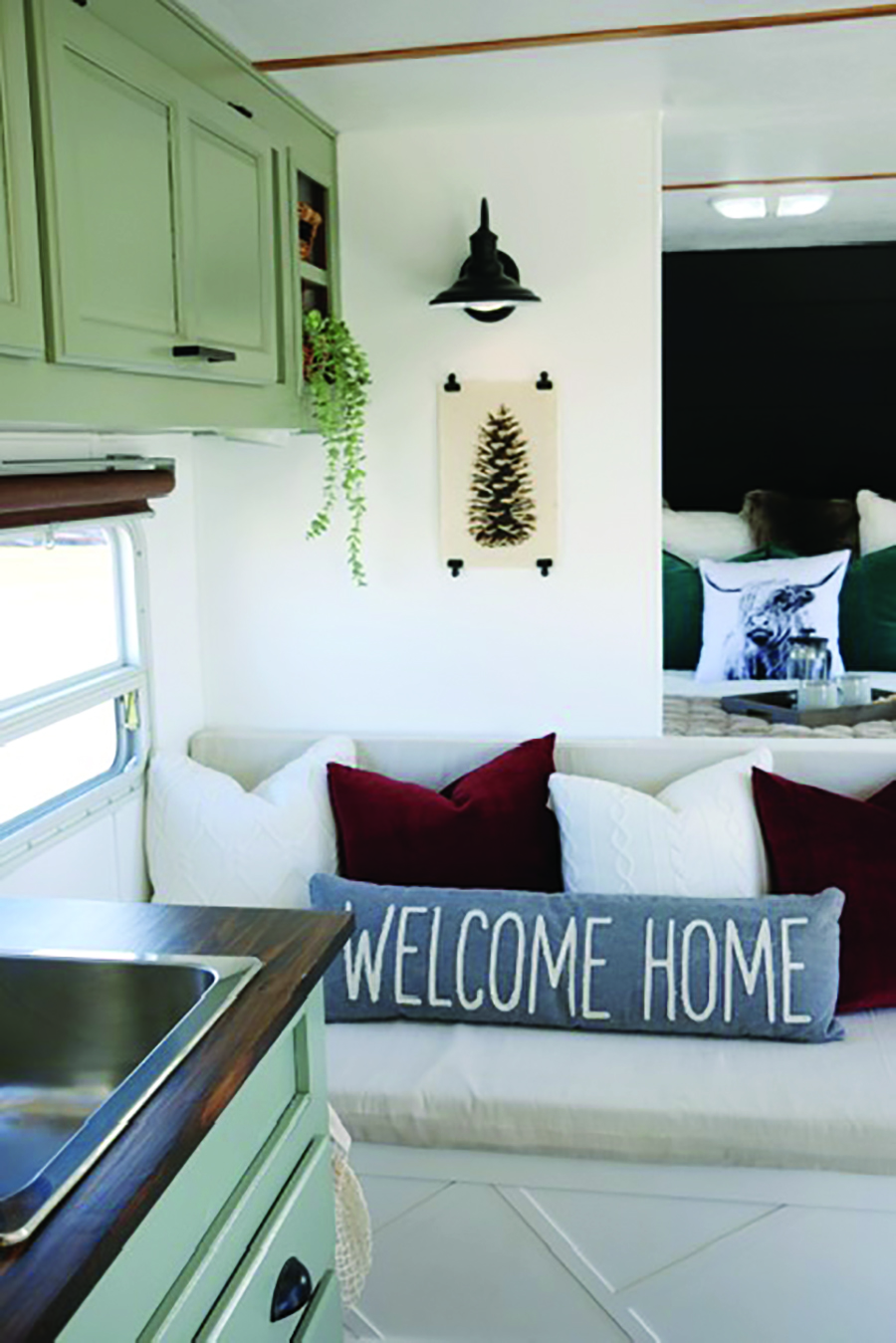
“We had to cancel 100 percent of our programs for 2020 and 2021,” McQueen says. “Not knowing what to do, we started focusing on future programs and decided to launch a new facet of our company called Harmony Tours for 2022. Still, we were over a year-and-a-half away from that becoming a reality, so we had to sit down and think of other things to do in the meantime.”
So, they went back to the drawing board. McQueen gathered up his team and set up chairs on the lawn outside the office, where they tossed out business ideas based on their other passions and strengths. He shared an idea that he and his wife had while they were talking about selling their travel trailer: Instead of listing it as-is, they’d do some renovations and sell it as a “flip.”
The team loved his idea of renovating RVs even though it was the furthest thing from sending high school choirs to New York. They took the idea and ran with it using McQueen’s camper as their Frankenstein. Soon, COA would double as Northern Colorado’s newest RV renovation company: Forge & Trek.
“We really just jumped in and started learning what it takes to flip an RV,” McQueen says. “It’s like renovating a tiny house, except nothing is straight or plumb or level. Nick Galante, our managing director at COA, took a course to become a level one technician and learned about all the working components as well as how to do systems checks on our campers.”
It wasn’t long after they finished their first two flips that McQueen realized their skills could be put to better use in other areas of the business. So, he and Christopher Olin, the other founder of COA, put an ad on Indeed for an experienced contractor they could hire by the job.
“We felt really good delegating the building aspect to someone who could do it well and do it quickly,” says COA managing director, Maia Tomich. “That way, we can oversee the projects from our own specialties—Geoff’s wife and I focus on the marketing, sales and interior design, while the guys do a lot of the production and building design. Plus, with COA picking back up, we’re redirecting some of our attention there.”
As it turns out, hiring a contractor wasthe right move. Each camper project has turned out without a hitch, and the team has generated enough income to stay afloat despite theatres and concert halls being shut down for months on end. And now that travel restrictions are lifting and performances are expected to resume, the team is preparing to run both businesses at the same time.
“One thing we didn’t expect was to stumble upon such an amazing community of camper enthusiasts on social media,” Tomich says. “We’ve gotten a lot of requests for custom redesigns, and we’re even toying with the idea of renovating a handful of RVs and developing an inventory for individuals or campsites to rent. We’ll just have to wait and see.”

White Balcony
There’s something really special about walking into a locally owned shop. The moment you step inside, it feels as if you already know the people behind it all: their style, their sense of humor, the passion that keeps them going. More often than not, they’re also there to greet you with a smile that says, “thank you for supporting this thing that we created.” Maybe that’s why it’s so hard to see them go.
In a world of monopolies, the smallbusinesses that make up the fabric of our community are often swallowed up by online competition (what small business owner can afford to offer free, two-day shipping?), so it’s no surprise that COVID-19 was the breaking point for some of our favorite holes in the wall. But when White Balcony closed its doors in downtown Fort Collins last July, that wasn’t the end for owner Justine Reed.
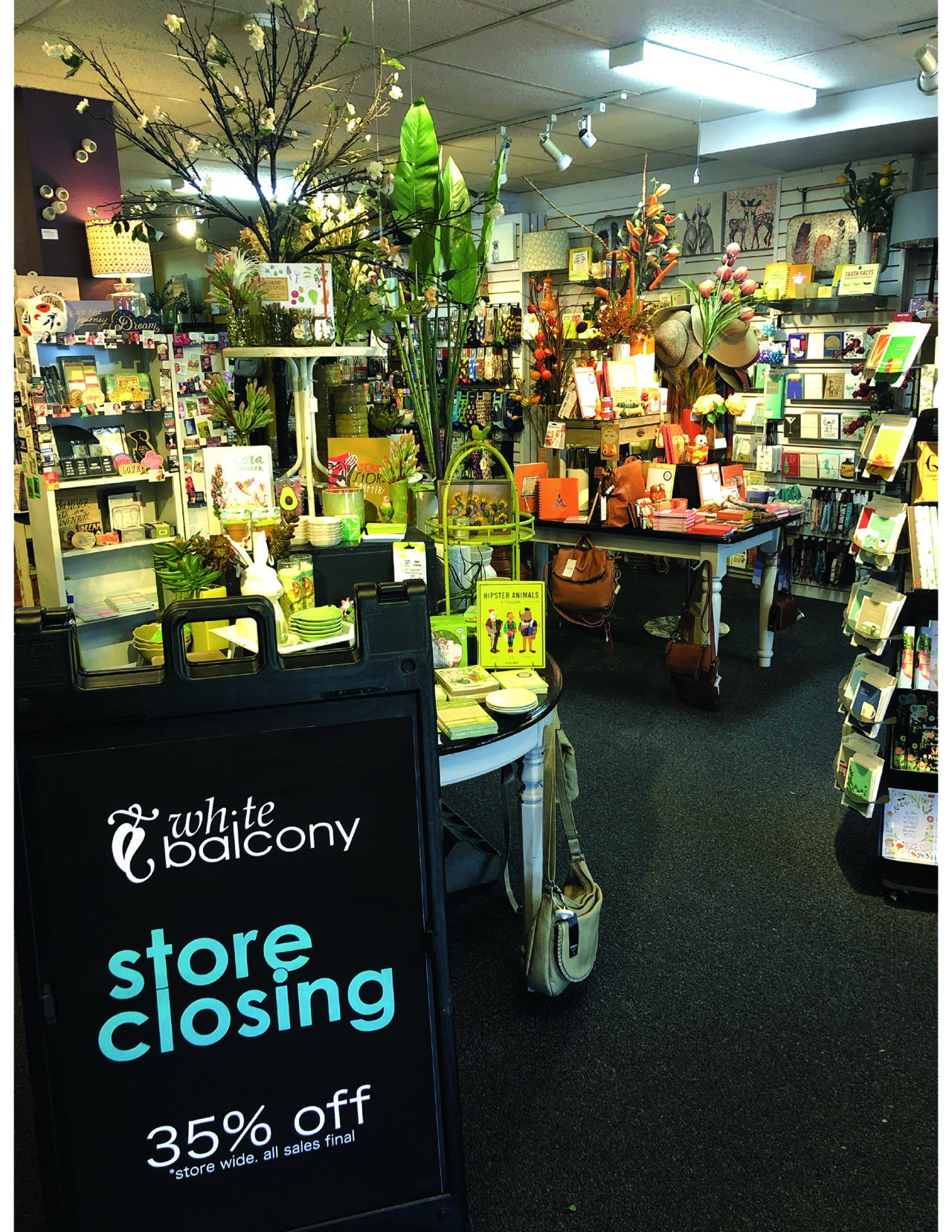 “I feel really lucky, and that sounds ironic,” she says. “I had a good long run with White Balcony—it was something I created on my own 17 years ago and had no idea what I was doing at first. I did try to save it in the end, but I didn’t want to do anything that felt artificial, like hiring someone to do cheesy Google ads just to compete with Amazon. So, I let the store die a graceful death and started looking to the next thing,” she says.
“I feel really lucky, and that sounds ironic,” she says. “I had a good long run with White Balcony—it was something I created on my own 17 years ago and had no idea what I was doing at first. I did try to save it in the end, but I didn’t want to do anything that felt artificial, like hiring someone to do cheesy Google ads just to compete with Amazon. So, I let the store die a graceful death and started looking to the next thing,” she says.
During her last few months in business, Reed set up a storewide sale to get rid of any products she didn’t plan on bringing along for her next endeavor: an online greeting card store. It would have the same name and the same irreverent humor she was known for, inspired in part by Gordon Ramsay and Mark Manson.
“The greeting cards were where a lot of my humor was displayed in the store, so I decided to take those with me,” she says. “I always hated the idea of having to clean up my voice if I were to do any type of online marketing, and this way I don’t have to censor the things I think are funny. To me, that makes it worth it to try the online thing on a small scale and on my own terms.”
Part of the reason Reed never attempted to replicate her entire store online was that she would have felt it impersonal, considering that her shop was always filled with laughter. At least with the cards, she knows the person sitting at home on a computer (or more likely a phone) is probably having a good chuckle. And, when she delivers them in Fort Collins, she still might catch them to say hello.
“I’m really happy with what White Balcony turned out to be,” she says. “We got so much love at the end—I still have photos of the sticky notes people left inside the display windows, and a lot of people came up to me personally to share how meaningful the store was to them. For people to say that they had an emotional bond with White Balcony was really cool because it made me realize that I created this amazing thing for people that will still live on in memories.”

Laurel Thompson is a Fort Collins native and CSU alum. When she isn’t writing for local lifestyle publications, you’ll find her soaking up the sun, cooking something delicious, or reading a good book while sipping an iced coffee. To comment on this article, email letters@nocostyle.com.



